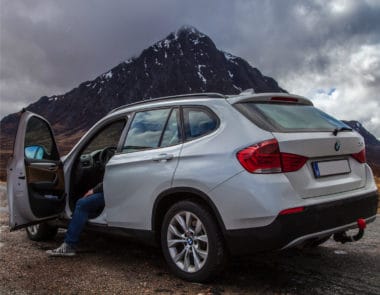The Best Travel Insurance – Guide to the Top Companies, Cost, & Buying Tips in 2025
When taking any trip, travel insurance can be a beneficial tool to protect yourself if your travels don’t go as planned. Without travel insurance, you may lose money and be upset. The good news is there are many travel insurance options available to purchase. You may even have some travel protections in place if you use travel credit cards to pay for your travel reservations. This guide will help you understand the best travel insurance options, so you know how to better protect yourself before your next trip. Before reading, feel free to check out: World Nomads, InsureMyTrip, and TravelInsurance.com
Table of Contents
What is Travel Insurance?
You’ve probably heard of travel insurance before, but you may still be confused as to what exactly it is. Travel insurance covers unforeseen losses when traveling.
Each policy is different and covered incidents vary greatly. This type of insurance can help you minimize the financial risks associated with traveling. If you get sick, have to cancel your trip due to a covered incident, or experience significant delays, your insurer will provide reimbursement for eligible non-refundable travel costs or provide reimbursement for additional purchases you needed to make as a result of your covered incident.
As you look into insurance options, be sure to carefully review policy details to understand what your insurance includes. There may be exclusions, and you don’t want to unexpectedly find out that you’re not covered after you purchase a policy.
What Types of Travel Insurance Are Available?
There are different types of travel insurance. Knowing more about the different types available can help you choose the right coverage for your needs. Here are some examples:
Trip delay: Lengthy travel delays can happen. If you’re traveling and experience delays covered by this type of insurance, you may be eligible for reimbursement for costs associated with the delay, such as lodging and meals. This type of insurance usually requires that you’re delayed for at least a set amount of hours or requires that the delay results in an overnight stay.
Trip interruption: If you’re forced to cut your trip short or your trip is extended for a covered reason, having trip interruption insurance may be helpful. Prepaid travel costs and extra expenses that occur may be reimbursed. The interruption must be for a covered event.
Trip cancellation: If you must cancel your trip before you leave, trip cancellation may cover prepaid non-refundable travel costs.
Baggage protection: Baggage protection may cover lost, delayed, or stolen baggage. If you qualify for a covered event, your insurance may reimburse for reasonable purchases that you needed to make while your baggage was lost or delayed or may offer reimbursement for stolen items. Baggage insurance policies may vary, so be sure to check coverage terms. Further Reading: What Should I Do If My Luggage is Delayed, Lost or Damaged by My Airline?
Travel medical insurance: This kind of travel insurance can help you get the medical care you need when traveling abroad. Your health insurance from home may not cover care in another country. If you have this coverage and an eligible claim, your insurance may reimburse you for medical costs you pay while abroad.
Emergency medical evacuation: If you’re traveling in an area without adequate medical care or hospitals that can meet your care needs, you may need to be transported elsewhere. Emergency medical evacuation coverage can cover transit to another medical center or hospital for a severe medical emergency.
Accidental death and dismemberment insurance (also called travel accident insurance): Serious accidents can happen when traveling. This type of insurance coverage pays out benefits when a covered person dies or is dismembered—for example, loss of eyesight, loss of a limb, or death.
Rental car coverage: Some policies offer rental car coverage that provides reimbursement for damage or theft that occurs to your rental car for eligible claims. Some policies cover rental cars abroad, but some don’t. Liability insurance is usually not included.
Comprehensive travel insurance: This type of insurance offers a range of travel protections all in one policy. Instead of purchasing individual coverage, this kind of plan may be best.
Cancel for any reason coverage: If you want to be able to cancel your trip no matter what, you may want to look for a policy that includes ‘cancel for any reason’ coverage. These insurance policies are best if you need complete flexibility.
24-Hour assist: Some travel insurance policies include 24-hour assist. If you need help rebooking flights, finding lost luggage, or scheduling an appointment with a local doctor, you can contact this hotline to get assistance.
Will Travel Insurance Protect Me During COVID-19?
Some travel insurers will cover COVID-19 related claims, but others don’t. Before purchasing coverage, be sure to look into the details and review any pandemic-related policy rules.
Do You Need Travel Insurance?
While travel insurance is not usually a requirement, it can be very beneficial. As a note, during the pandemic, some countries may require foreign citizens to carry travel insurance or other travel protections like international health insurance. Be sure to look into each destination’s COVID-19 entry requirements.
While travel insurance isn’t necessary, it can be valuable and worthwhile. Without coverage, you may lose out on money if you’ve already pre-paid for non-refundable travel costs.
If you’re unsure if travel insurance is necessary, evaluate the financial risk of each trip. If you have reservations booked that have a flexible cancellation policy or are not going to be out much money if your plans change, you may not need to buy travel insurance.
But if you’re taking a costly or lengthy trip that required upfront payment for nonrefundable travel expenses, the financial risk may be higher, and purchasing travel insurance may be the best choice.
What Does Travel Insurance Cost?
The cost of travel insurance varies greatly. Where you’re going, how long you plan to travel, the type of coverage you want, the cost of your trip, your age, and the medical conditions you already have are some of the factors that determine the price you will pay for coverage.
The average cost for travel insurance is 4% to 10% of the total trip cost. If you’re wondering how much insurance might cost for your next trip, it’s a good idea to compare policies and pricing from different insurance providers. Quotes are available for free.
Do You Already Have Coverage?
You may have a credit card with included coverage. Here’s a breakdown of some top credit cards that include travel insurance and other travel protections:
Which credit cards include travel insurance?
American Express Gold Card: car rental loss and damage insurance, global assist hotline, baggage insurance, trip delay insurance,
American Express Green Card: car rental loss and damage insurance, global assist hotline, baggage insurance, trip delay insurance
British Airways Visa Signature Card: global assist hotline, car rental loss and damage waiver
Chase Freedom Unlimited: car rental loss and damage waiver, trip cancellation and trip interruption, car rental loss and damage waiver
Chase Ink Business Preferred: Trip interruption and trip cancellation insurance, lost and delayed luggage, car rental loss and damage waiver, roadside assistance
Chase Sapphire Preferred® Card: Trip delay, trip interruption and trip cancellation insurance, lost and delayed luggage, global assist hotline, car rental loss and damage waiver
Chase Sapphire Reserve®: Trip delay, trip interruption and trip cancellation insurance, lost and delayed luggage, global assist hotline, car rental loss and damage waiver, emergency evacuation and transportation, roadside assistance
Delta SkyMiles Reserve American Express Card: Trip delay and trip cancellation, lost and delayed luggage, car rental loss and damage waiver, global assist hotline
The Platinum Card® from American Express: car rental loss and damage insurance, premium global assist hotline, baggage insurance, trip delay insurance, trip cancellation and interruption insurance
Southwest Rapid Rewards Premier Credit Card: Lost and delayed luggage, global assist hotline, car rental loss and damage waiver, roadside assistance
The World of Hyatt Credit Card: Trip delay and trip cancellation, lost and delayed luggage,
United Club Infinite Card: Trip delay and trip cancellation, lost and delayed luggage, car rental loss and damage waiver
United Explorer Card: Trip delay and trip cancellation, lost and delayed luggage, car rental loss and damage waiver, global assist hotline
Be sure to check your credit card benefits before purchasing travel insurance to avoid paying extra for coverage you already have. If you plan to use insurance benefits, use your credit card to pay for travel purchases. It’s also a smart idea to regularly review your card’s benefits, as benefits can change at any time.
See our full guide on the best credit cards offering travel insurance.
Where to Buy Travel Insurance
If you don’t have a credit card with travel insurance or think the included coverage is enough for your needs, you may want to buy a travel insurance policy. You can compare coverage options and purchase insurance coverage directly from an insurer, or you can use an insurance aggregator to compare coverage and find the right insurance for your needs. We’ll explain some options below:
Companies to Buy Directly
You can purchase travel insurance directly from insurance companies. There are a few companies that are leaders in the industry. Here are some insurers to consider:
World Nomads: World Nomads travel insurance has been designed by travelers for travelers, with coverage for more than 150 activities as well as emergency medical, lost luggage, trip cancellation and more
World Nomads provides travel insurance for travelers in over 100 countries. As an affiliate, we receive a fee when you get a quote from World Nomads using this link. We do not represent World Nomads. This is information only and not a recommendation to buy travel insurance.
AIG Travel Guard: AIG Travel Guard has three levels of travel insurance coverage—deluxe, preferred, and essential. You can quickly get a quote on their website. All you need to do is fill in your travel dates and trip details. Each coverage level explains what’s included and benefit amounts. You can purchase insurance for a single trip or buy an annual travel insurance policy, though not all destinations may be covered in the annual policy.
Allianz Travel Insurance: Allianz Travel Insurance lets you purchase travel insurance for a single trip, or you can buy an annual plan for multi-trip coverage. You’ll need to fill in your travel details and personal details to get an online quote. Three coverage types are available—executive, prime, and basic. Most yearly insurance policies only cover trips of up to 45 days, but you may be able to purchase coverage for trips up to 90 days.
GeoBlue: GeoBlue offers international medical insurance. They provide long-term coverage and short-term coverage options, and you can buy a policy for single trips or get coverage for multi-trip travel. If your health insurance doesn’t cover you outside of your country of residence, you may want to consider purchasing an international medical insurance policy so you don’t have to worry about healthcare costs while traveling.
Travelex: Travelex offers three levels of insurance coverage for single trip coverage—travel basic, travel select, and travel America. If you’re traveling outside of the U.S., travel America coverage won’t be available. You’ll be shown coverage options under each plan type. If you’re going to travel to multiple destinations during your trip, Travelex instructs you to select the destination where you’ll be spending the most time.
Best Aggregators to Use to Compare Policies
Aggregators can be beneficial because they help you search for many options at once. You can save time and better compare rates and coverage. You may want to use some of the following insurance aggregators to compare travel insurance options before buying:
InsureMyTrip: InsureMyTrip allows travelers to search and compare travel insurance policies from 23 insurance companies. Available insurance types include comprehensive, medical, evacuation, embassy visa, accidental visa, and vacation rental damage coverage. You can get quotes for single trip plans, multi-trip annual plans, and group travel plans. You’ll be shown policy options and pricing for different insurers.
Squaremouth: Squaremouth makes it easy to compare 96 travel insurance policy options from 22 insurance companies. You can search for coverage for single trips, multi-trip travel, and annual coverage. You can also compare cruise insurance policies and adventure sports policies.
TravelInsurance.com: TravelInsurance.com makes it easy to compare travel insurance options. You’ll be shown policy options and pricing from 14 insurance companies. TravelInsurance.com offers the lowest prices available for each insurer, so it’s an excellent tool to use to find the best price.
FAQ
No. Getting a quote is completely free.
Travel insurance isn’t a must, but it can be helpful. Without it, you may lose money on prepaid, non-refundable travel costs if your trip doesn’t go as planned.
Travel insurance costs vary. Many factors including your destination, trip length, trip cost, and age will be a factor in what you pay for coverage. In most cases, you can expect to pay 4% to 10% of your total trip cost for a travel insurance policy.
You can buy travel insurance before you book your trip or after you book it. It’s beneficial to book as soon as you can to secure the best rate. Some insurers, but not many, may also allow you to purchase a policy after your trip starts. Since this is rare, it’s good practice to get in the habit of purchasing travel insurance policies before your trips begin.
Many credit cards include travel insurance and other protection benefits, especially the most popular travel credit cards. It’s a good idea to review your card benefits to see if insurance is available.
The Vacationer’s Final Thoughts
While travel insurance isn’t a must, it’s a good idea. Before you take your next trip, consider purchasing an insurance policy. Getting a quote is easy and free, and you can compare policies in a matter of minutes. You can decide if buying a travel insurance policy makes sense based on the financial risk. Before purchasing a policy, check if any of your travel credit cards include coverage.
Get The Vacationer Newsletter
Get highlights of the most important news delivered to your email inbox






